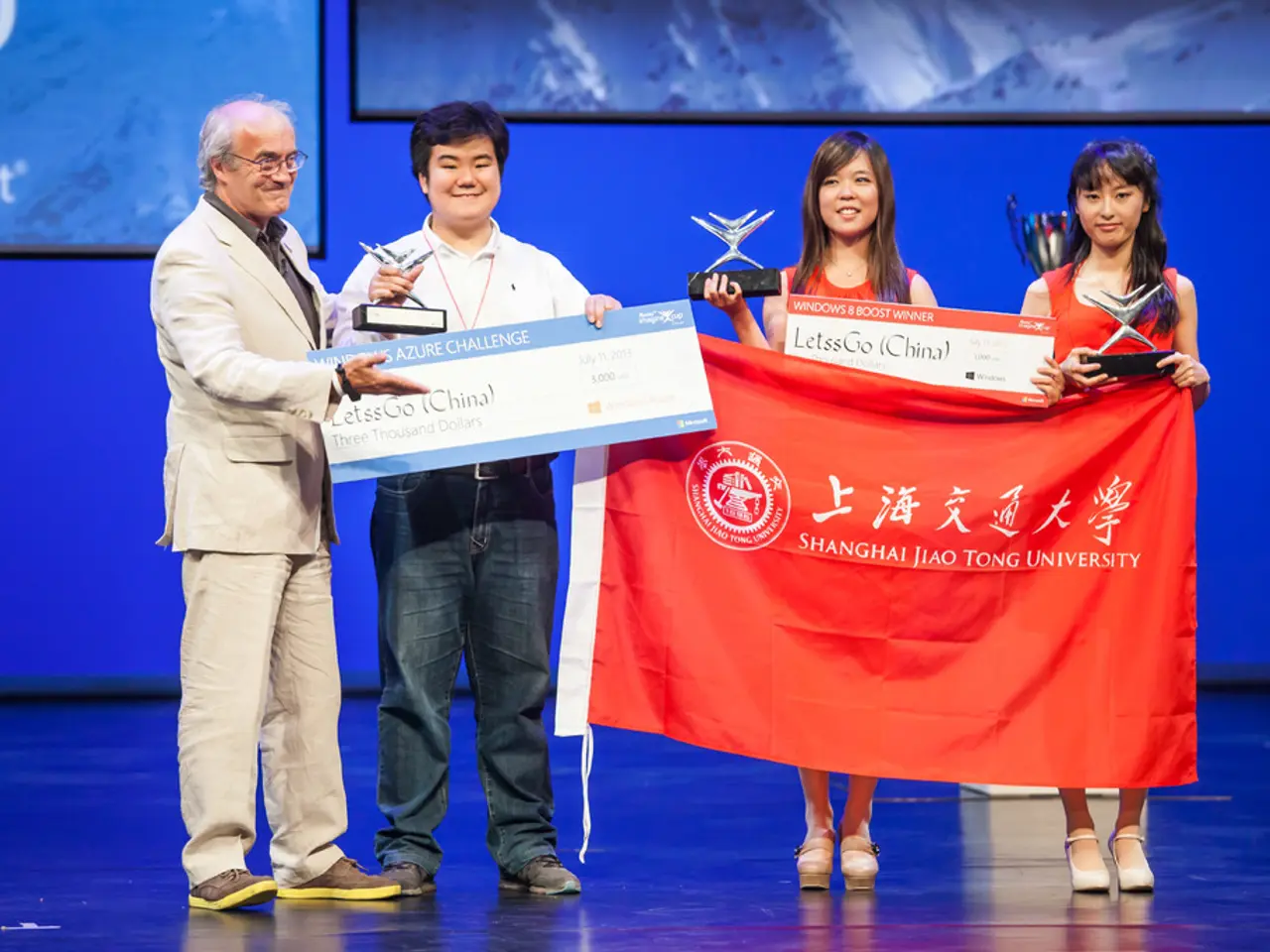China Transforming Trump's Tariffs into Advantages for Self
Through the Looking Glass of China's Response to Economic Challenges:
Navigating the US-China trade war, exempted imports, punitive tariffs, weak domestic demand, and more, China's economy is a complex beast, requiring an equally intricate approach. Shaped by a diverse arsenal of fiscal and monetary policies, China flexes its financial muscles to withstand economic storms.
When it comes to taking the wheel, fiscal policy steers the ship. A colossal 10 trillion yuan (approximately $1.3 trillion) debt swap plan has been announced, serving as a lifebuoy for local governments grappling with hidden debt. This move reduces interest rates, on average, by a whopping 2.5 percentage points, potentially saving a staggering 600 billion yuan over five years.
Social welfare is another cog in the wheel, with China rolling out programs to support vulnerable populations and boost domestic consumption—crucial for economic growth. From securing jobs and improving healthcare and education, these measures help maintain social stability and fortify consumer confidence.
As the US-China trade war rages on, China refuses to back down. Its response, a package of countercyclical policies, is designed to stabilize the economy and protect its interests. Whether it's implementing stimulus packages, conducting debt swaps, or introducing social welfare measures, China is poised to weather the storm.
But wait, there's more. While China isn't exactly dropping subtle hints about its next move, experts speculate it may front-load economic stimulus, expand fiscal deficits, and implement monetary easing measures. These moves aim to support domestic growth by increasing government spending and reducing borrowing costs for businesses.
In a nutshell, China's countercyclical policies are more than a hodgepodge of measures; they're a carefully constructed response to the economic challenges of our time. From tackling local government debt to bolstering the domestic economy and protecting its interests amidst the US-China trade war, China's approach is a masterclass in economic resilience.
- China's response to economic challenges, such as the US-China trade war and weak domestic demand, involves a diverse arsenal of fiscal and monetary policies, making its economy a complex beast.
- To steer the economy, China employs fiscal policy, announcing a colossal 10 trillion yuan debt swap plan as a lifeline for local governments dealing with hidden debt.
- Social welfare measures are another important aspect of China's approach, aimed at supporting vulnerable populations and boosting domestic consumption, essential for economic growth.
- Amidst the ongoing US-China trade war, China has unveiled a package of countercyclical policies to stabilize its economy and protect its interests.
- Experts speculate China may front-load economic stimulus, expand fiscal deficits, and implement monetary easing measures to support domestic growth.
- The tools China uses in its economic response, like stimulus packages, debt swaps, social welfare measures, and various policies, are more than just a haphazard collection; they're a carefully crafted approach to economic resilience.
- China's economy is shaped by tools from its financial toolbox, including fiscal policies, social welfare measures, and diplomatic negotiations, such as a possible currency swap with the International Monetary Fund.






